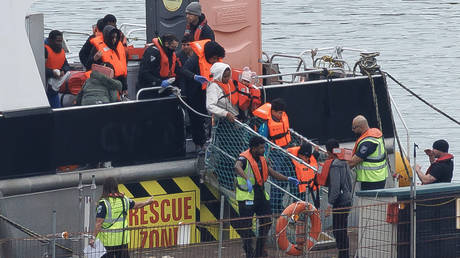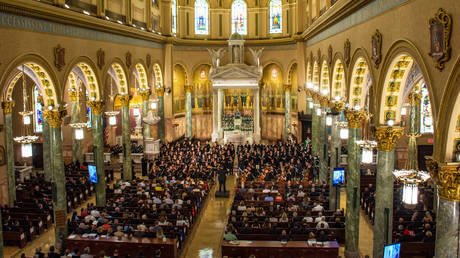
Using the belongings of new arrivals to cover costs could deter them from coming to the country
Asylum seekers arriving in the UK could have their valuables confiscated to help cover the cost of benefits, a British Home Office minister has said. The government of Keir Starmer is preparing to overhaul its immigration policy and reduce the number of arriving refugees.
High-value assets such as vehicles could be taken, Minister of State for Border Security and Asylum at the Home Office Alex Norris told the British media on Monday, before the formal statement by Home Secretary Shabana Mahmood to Parliament.
“It is right if those people have money in the bank, people have assets like cars, like e-bikes, they should be contributing… Those are assets they should contribute to the cost of benefits.” The Sun earlier reported that valuables such as jewelry and watches may be seized and sold to offset housing costs.
Norris insisted authorities would not be “taking people’s heirlooms off them at the border,” saying sentimental items would be exempt. “If someone comes over with a bag full of gold rings, well, that’s different to what I said about the heirloom,” he added, urging the public to wait for Mahmood’s full statement.
British media have linked the proposal to Denmark’s strict asylum model, under which the authorities may seize assets above a set threshold to fund support services and deter arrivals. Switzerland operates comparable rules, allowing the confiscation of cash or valuables above roughly €900 to contribute to an asylum seekers’ upkeep.
Mahmood’s wider immigration overhaul seeks to accelerate asylum decisions, expand detention capacity and reduce state spending on irregular arrivals. The UK has been reeling under a migration crisis for years, with government data showing that already around 111,000 asylum applications were filed in the first half of this year. The number of claimants has nearly doubled since 2021, a Home Office report found.
READ MORE: UK PM’s team in ‘bunker mode’ amid coup fears – media
Meanwhile, support for the anti-immigration and EU-skeptic Reform party, led by MP Nigel Farage, has risen to 35%, with Labour and the Conservatives trailing behind at 20% and 17% respectively, according to a recent poll.




